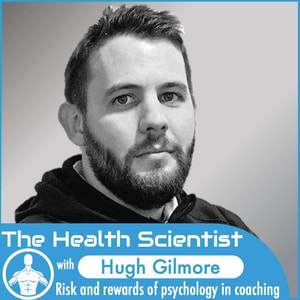Ep.47 Hugh Gilmore: Risk and rewards of psychology in coaching

Hugh Gilmore is a BASES accredited sports psychologist who has spent the last 6 years working with Olympians and Paralympians within Great Britain athletics and GB weightlifting. He also has a wealth of experience working within the GAA and Net Ball Northern Ireland. On top of all that, Hugh is also co-host of the Eight Percent Mental podcast.
Harnessing Communication for Performance Enhancement: Online Course
Podium Psychology (Hugh's Website)
In this episode we cover:
- Hugh's background in sports science and sports psychology.
- What it's like working as a sport's psychologist for GB Athletics and GB Weightlifting
- The power of instruction and guidance on sports performance
- How does a sport's psychologist help an athlete perform better
- The power of reframing a situation to change someone's perspective of it
- An introduction to tubing
- Why telling people what to do is not a useful approach
- How asking questions with Motivational Interviewing helps bring about change
- Hugh's thoughts on the increase in interest in psychological techniques in coaching in recent years
- The concept that strong medicine can be strong poison: how psychology can also cause harm
- Why comprehensive training in psychology is important to make sure practitioners don't cause harm
- The danger in assuming that all psychology techniques are benign
- The example of using mindfulness in treating eating disorders
- What are some contradictions of different psychological techniques
- What's the problem with NeuroLinguistic Programming (NLP)
- Importance of realizing that no technique works all the time
- Is there any way to know if a psychology practitioner is genuinely qualified?
